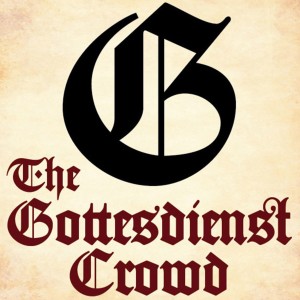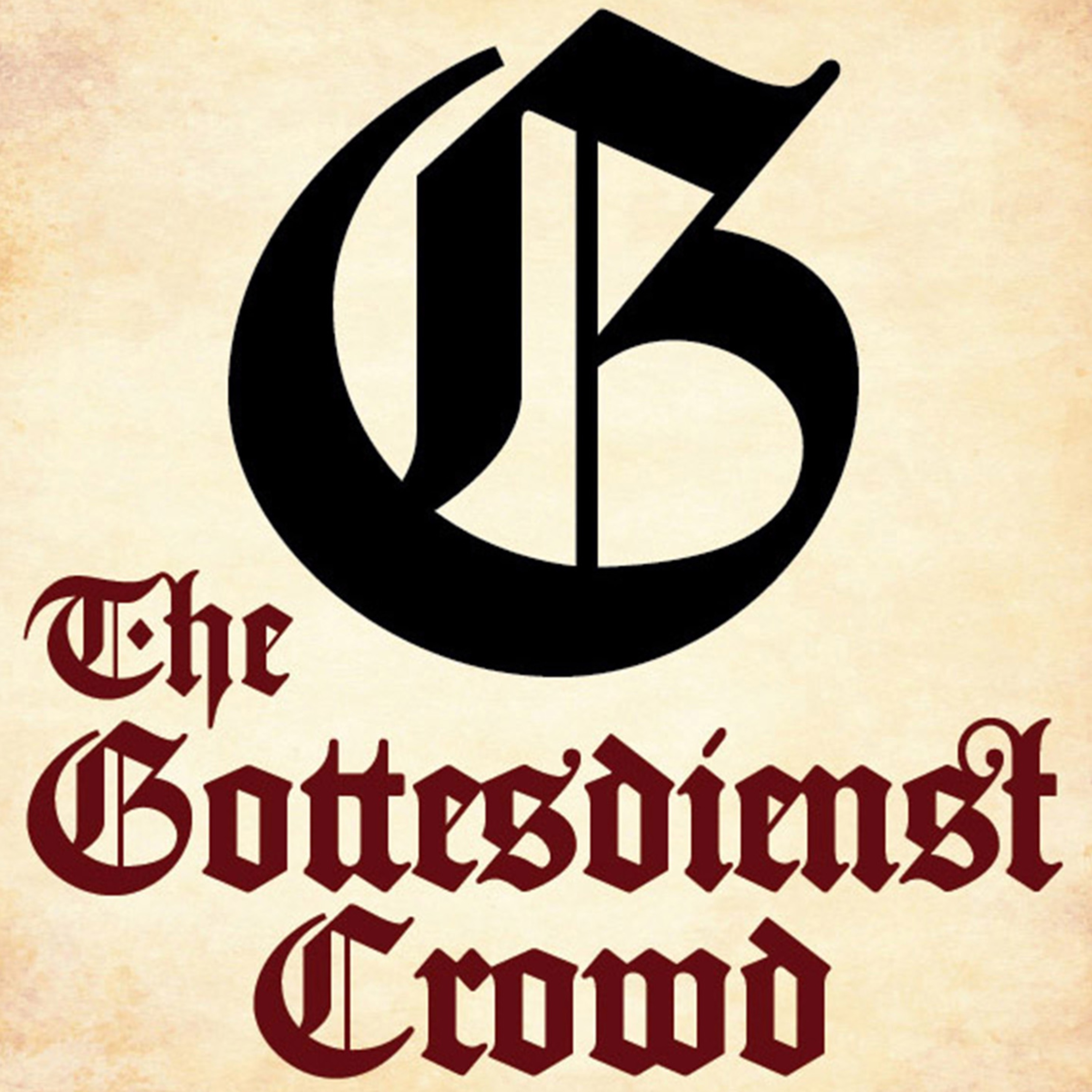Episodes

Monday Nov 28, 2022
TGC 239 — Thinking Out Loud (Advent 2)
Monday Nov 28, 2022
Monday Nov 28, 2022
Two pastors thinking out loud about the upcoming Gospel reading. This episode is devoted to the Gospel reading for The Second Sunday in Advent, Luke 21:25–36.
Read the rest of this entry »
Wednesday Nov 23, 2022
TGC 238 — Victory By Head Wound
Wednesday Nov 23, 2022
Wednesday Nov 23, 2022
There are themes in the Scriptures that must not be ignored for they speak of Christ and his work. In this episode, we look at the theme of “victory by head wound.” The first promise of the Savior, given in Genesis 3:15, says that the seed of Eve will crush the head of the serpent. Throughout the Old Testament and into the New Testament, the enemies of God are defeated by a head wound.
Read the rest of this entry »
Monday Nov 21, 2022
TGC 237 — Thinking Out Loud (Advent 1)
Monday Nov 21, 2022
Monday Nov 21, 2022
Two pastors thinking out loud about the upcoming Gospel reading. This episode is devoted to the Gospel reading for The First Sunday in Advent, Matthew 21:1–9.
Read the rest of this entry »
Wednesday Nov 16, 2022
TGC 236 — What I Wish I Knew: Lessons From Getting an MBA
Wednesday Nov 16, 2022
Wednesday Nov 16, 2022
There are often ties made between the business world and the church. Some of them are more helpful than others. Some of them are more appropriate than others. In this episode, I asked Bart Day (the president and CEO of Lutheran Church Extension Fund) about what he learned by completing a Master of Business Administration from Washington University and what he wish he had known from that program as a newly minted pastor. What can we actually learn from the business world that helps in our work in the church?
List of books mentioned:
- Thinking, Fast and Slow by Daniel Kahneman
- Nudge by Richard Thaler and Cass Sunstein
- Freakonomics by Steve Levitt and Stephen Dubner
- All the Leadership Fables by Patrick Lencioni
- Measure What Matters by John Doerr
- The Machine That Changed the World by James Womack, Daniel Jones, and Daniel Roos
- How Stella Saved the Farm by Chris Trimble and Vijay Govindarajan
- The Goal and It’s Not Luck by Eliyahu Goldratt
Host: Fr. Jason Braaten
Special Guest: Fr. Bart Day
Read the rest of this entry »
Monday Nov 14, 2022
TGC 235 — Thinking Out Loud (Trinity 27)
Monday Nov 14, 2022
Monday Nov 14, 2022
Two pastors thinking out loud about the upcoming Gospel reading. This episode is devoted to the Gospel reading for The Twenty-Seventh Sunday after Trinity, Matthew 25:1–13.
Read the rest of this entry »
Wednesday Nov 09, 2022
TGC 234 — To Vest or Sweater Vest?
Wednesday Nov 09, 2022
Wednesday Nov 09, 2022
This episode reaches beyond the issues that exist only in the Lutheran world and into the world of Mere Christianity. To vest or not to vest—that is the question. Whether tis nobler in the mind to suffer the slings and arrows of sacerdotal charges, or to take up arms against a sea of satire and by opposing end them. Our guest, Doug Wilson (pastor of Christ Church, Moscow, ID) has something to say about it. The occasion for the chat was a blog post he had written in 2018, Surplices are for Sissies, focusing on the importance that the pastoral office need to be masculine in voice, action, and representation. Our conversation discussed that and more. Wilson is eminently reasonable on the topic, as you will no doubt see.
If you enjoyed this episode, you might enjoy these:
- TGC 232 — Christian Nationalism
- TGC 217 — A Lutheran Kuyperian Vision?
- TGC 200 — The Fathers & The Solas
- TGC 187 — On Imprecation
- TGC 115 — Liturgicals, Pietists, and the Kingdom of the Left
Host: Fr. Jason Braaten
Special Guest: Pr. Douglas Wilson
Read the rest of this entry »
Monday Nov 07, 2022
TGC 233 — Thinking Out Loud (Trinity 26)
Monday Nov 07, 2022
Monday Nov 07, 2022
Two pastors thinking out loud about the upcoming Gospel reading. This episode is devoted to the Gospel reading for The Twenty-Sixth Sunday after Trinity, Matthew 25:31–46.
Read the rest of this entry »
Wednesday Nov 02, 2022
TGC 232 — Christian Nationalism
Wednesday Nov 02, 2022
Wednesday Nov 02, 2022
Christian Nationalism is all the rage in the media these days. By some it is used as a term of derision, a smear, in order to silence debate. By others it is a vision of what their nation should be and strive for. In this episode, Ramirez and I seek to clarify its meaning and ask the question if Christians should take up the smear in the same way our fathers in the faith took on the name “Lutheran.”
Further Resources:
Host: Fr. Jason Braaten
Regular Guest: Fr. David Ramirez
Read the rest of this entry »
Monday Oct 31, 2022
TGC 231 — Thinking Out Loud (All Saints)
Monday Oct 31, 2022
Monday Oct 31, 2022
Two pastors thinking out loud about the upcoming Gospel reading. This episode is devoted to the Gospel reading for The Feast of All Saints, Matthew 5:1–12.
Read the rest of this entry »
Wednesday Oct 26, 2022
TGC 230 — Book Talk: Thoughts for Young Men, JC Ryle
Wednesday Oct 26, 2022
Wednesday Oct 26, 2022
In this Book Talk, Willie Grills walks us through the book Thoughts for Young Men by J.C. Ryle.
You can hear more about J.C. Ryle HERE.
Host: Fr. Jason Braaten
Special Guest: Fr. Willie Grills
Read the rest of this entry »
